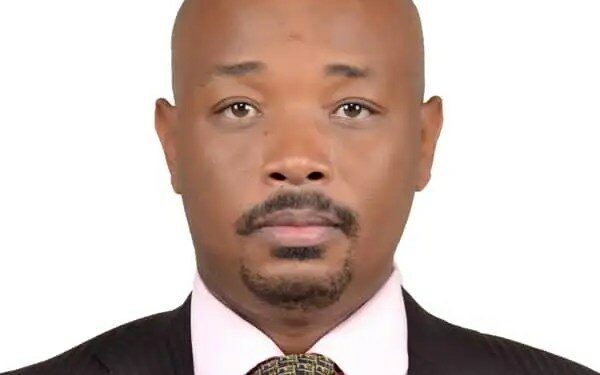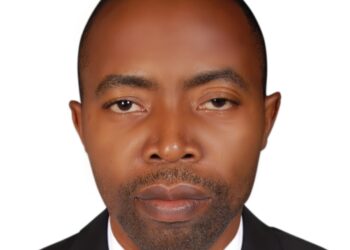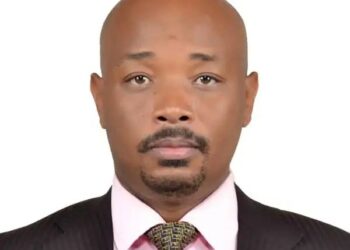On May 10, 2024, the government commenced and conducted the National Population Census establishing that the population stood at 45,905,417 persons out of which male persons were found to be 24,338,681. This in effect means that the population has increased by 11.3 million people since the last census now termed as National Population and Housing Census.
A look at past statistics shows a steady increase in the population since 1969 when the numbers stood at 9.5 million people. By 1980, the population stood at 12.6 before climbing up to 16.7 million people in 1991. Another census was carried out in 2002 placing the population at 24.2 and 12 years later in 2014, the population of Uganda was placed at 34.2 million people.
A census is defined to mean a statistical operation in which all units (whole population) of interest are enumerated. It is also termed as the process of carrying out a total count of all persons within the territorial boundaries of a given state at a given period and disseminating the findings to the relevant entities to plan for the country across a period of usually 10year.
The reasons why many countries carry out census after about 10 years is to bridge the gaps in the information on population. The essential features of the exercise are individual enumeration, universality within a defined territory, simultaneity and defined periodicity. The exercise is thus used as basis for collection of information on the demographics of the population as well as the social economic characteristic of the population.
If the exercise is carried out in a professional manner, that information can enable the government to plan for the population through policy formation, monitoring, revaluation and development of development programs both at national and local government level. On the other hand, any mistakes whether by default or negligence can mislead a whole government.
It goes without saying therefore that the failure by government to collect from people or to collect accurate information during the national census can also have significant future impacts on its obligations provided for under the Constitution and under the International charters, Covenant and declaration to which Uganda is a signatory.
A few years ago, I wrote about this census exercise and questioned the modus operand used by the Uganda Bureau of Statistics (UBOS- the bureau) to execute their mandate. In that write up, I suggested that since Uganda enjoys a decentralized system, census should be handled by the District Administrative structures with the input of a few officials from UBOS.
I proposed that the whole process be pushed down to the local council Chairpersons at village level at a minimal cost with instructions to pick all the vital information required by the bureau and after verification, the information is sent to the parish level for further verification after which it is sent to the sub-county before it is delivered to the district. From the district, errors if any can be rectified before the data is disseminated to UBOS for the final tally.
In the 2024 national census, the tax payer parted with over 60 billion on a bogus exercise whose results were confirmed to be bogus and with embarrassing errors leaving Ugandans asking whether the expenditure was worth the outcome. It is hard to tell whether there was value for money especially when glaring errors were discovered after releasing the results.
Whereas the Executive Director of UBOS had on August 1 reported having spent Shs.62.3 billion, the institutions Public Relations officer contradicted him saying the actual amount spent was Shs.61.2 billion. What then was the purpose of an expensive exercise that produced erroneous results, is that something any can call human error, no, it was deliberate. Has UBOS explained the margin of error that they are treating as minor and asking Ugandans to disregard?
Let us not forget that conducting surveys is a delicate balancing act which requires careful handling. The margin of error is a useful metric in assessing the reliability and precision of the survey. An acceptable margin of error used by most survey typically falls between 4% and 8% at the 95% confidence level. This is where UBOS went wrong and need to come out clean.
On whether the exercise was successful or not is a subject of this writing. Irrespective of the amount spent and or swindled, how can the government spend sum colossal sums of money and then UBOS, a statutory body releases erroneous results contrary to what was gathered from the ground where they claim to have picked the data.
For our own guidance, Section 19 of the Uganda Bureau of Statistics Act requires the Executive Director to ensure that any statistical data collected and after appropriate processing and ascertaining its quality is devoid of any inaccuracies. One of the contentious issues was the claim that Acholi and my own backyard in Bugisu had dropped in population numbers.
The next phase is where I want my readers to focus their attention. It may be in our interest to recall that UBOS first released the Preliminary results of the digital census on May 27. The results were officially made public by the Prime minister on October, 3, where our population stood at 45,905,417 persons with the population of the Acholi dropping from 2,131,443 in 2014 to 1,941,913 and that of the Bagisu dropping from 2,390,975 in 2014 to 2,096,149 in 2024.
The Executive Director said that what was released by the Prime Minister was the official figures and the next exercise would be conducted in 2034. However, some members of the public disputed the results calling for a review. UBOS coiled its tailed and went back to the drawing board only to return with different results.
In the updated results which are still undergoing further review, the Bagisu population changed from 1,647,382 in 2014 to 2,096,149 while the Acholi rose from 1,470,884 to 1,941,913 people. For some of us who were not part of the process, we are justified to remain doubting or to just believe and life goes on. How can UBOS expect Ugandans to believe that the uncontested results are accurate and how can the government rely on such information to plan for the future?
For those who have been following trends, you will recall that Dr. Chris Mukiza while appearing on Capital Gang on October, 6 was pushed into a corner until he admitted that there were significant errors in the information on tribes in the 2024 Census results. He was not shy to say it was human error made at printing and it was within the mandate of UBOs to revisit the same.
According to the results, it appears the population figures for Lango were erroneously given to the Acholi while for the Acholi were given to the Bakiga and that of the Bakiga were given to the Bagisu and for the Bagisu were given to the Langi. If I were Dr. Chris Mukisa, I would do the most honorable thing in the public interest, resign and go back to school.
There is also a high likelihood that the results for the Catholics were given to the Anglican and those of the Anglican given to the Muslims and that of the Muslims given to the seventh Adventists and those of the Adventist given to the atheist and the reverse could be true. I am so sure that we shall get several reactions from leaders across the religious divide attacking UBOS for giving them wrong results especially the Muslims who believe they are more in number.
Certainly, some people were not counted while others were counted twice or even more, that means that some of the data was based on estimates. Let us not forget that this time round UBOS was using the electronic system of gathering information. We are told in some areas, the machines refused to work, others did not have charge, some of the enumerators did not know how to use the machines, in some areas power banks were stolen while others machines failed to work due to poor internet network.
I want to believe somebody somewhere wants to use the census results to create an unequal distribution of national resources and to influence the outcome of the 2026 elections in advance. Let us not forget that census results have a direct bearing on the budget allocation and could deprive some people an opportunity to share in the national cake.
The census report had also indicated that Bakiga grew from 1,470,884 in 2014 to 2,947,837 in 2024 representing a 100.4% increase while tribes like the Jopadhola who were 481,000 in 2014 were dumped in the group called others as if they are not listed as official tribes in the constitution of the land. This issue of mismatching figure like the electoral commissions always does is becoming a jigger in the foot and is definitely ill intentioned.
Dr. Chris Mukiza is slowly but surely going into the annals of history as a man who had issues with figures despite his qualifications. He has already indicated in several speeches that he has not intentions of resigning his job just for the sake of minor errors. If playing with national figures is a minor error, the future will posthumously judge many of us harshly.
Wadada Rogers is a commentator on political, legal and social issues. Wadroger @yahoo.ca
Do you have a story in your community or an opinion to share with us: Email us at editorial@watchdoguganda.com













